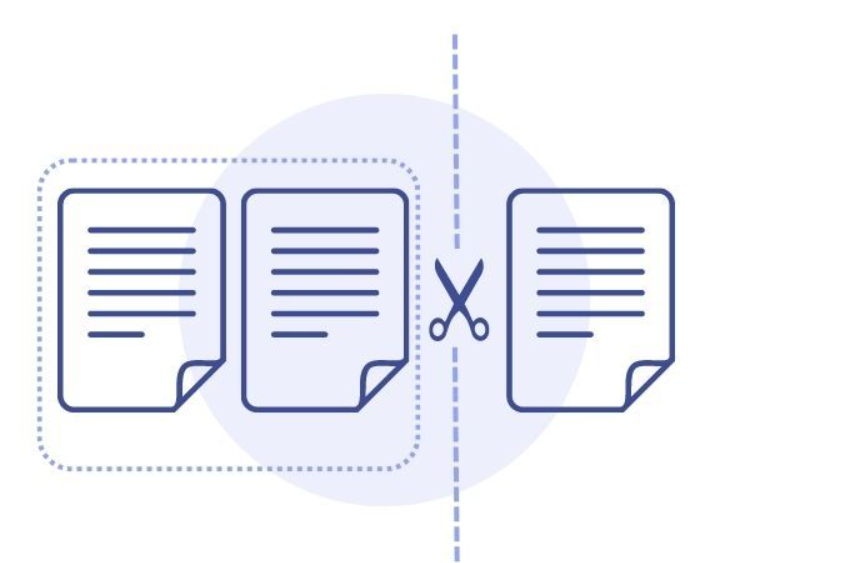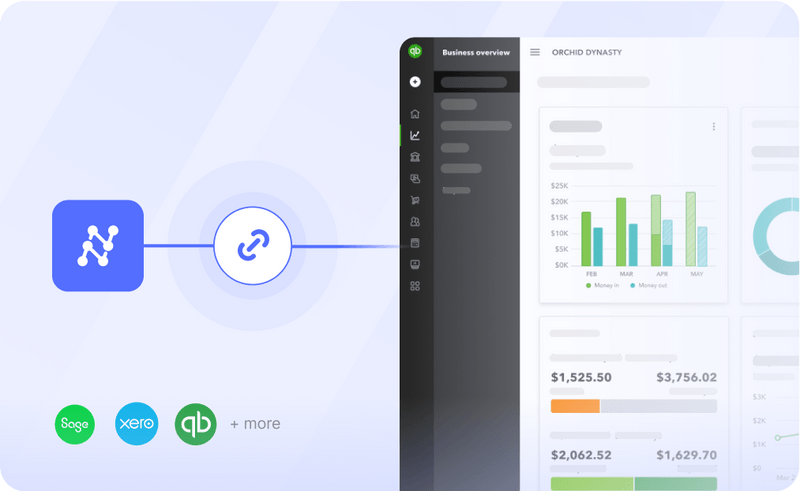This comprehensive guide explores the need for AI in healthcare claims processing. It also explores new technologies, benefits, and challenges.

In the intricate web of the healthcare ecosystem, claims processing stands as a critical juncture where the efficiency and accuracy of operations profoundly impact patient care, provider satisfaction, and overall system performance. Traditionally, this process has been plagued by manual errors, time-consuming verifications, and a plethora of administrative challenges, prompting the healthcare industry to seek innovative solutions.
Enter Artificial Intelligence (AI), a technological powerhouse reshaping industries across the globe. AI emerges as a transformative force in healthcare claims processing, promising to revolutionize how we handle, assess, and streamline the intricacies of claims submissions and reimbursements.
This comprehensive guide explores the need for AI in healthcare claims processing, offering a roadmap through the landscape of emerging technologies, benefits, and challenges.
Let us explore how AI is poised to redefine the very core of healthcare administration, leading us toward a future where efficiency meets empathy and claims processing becomes a seamless, accurate, and patient-centric endeavor.
Reduce patient wait times, amplify workforce, and improve efficiency across your healthcare ecosystem with automated document processing and workflows.
What is the Process of Healthcare Claims Processing?
Submission
The journey begins with healthcare providers generating claims for patient services. These claims contain a comprehensive record of medical procedures, diagnoses, and associated costs. The submission phase involves transmitting these claims to insurance companies or other responsible entities for processing.
Review
Once submitted, claims undergo a meticulous review process. During this stage, payers scrutinize the claims for accuracy, coding standards adherence, and policy terms compliance. This step is crucial in determining the legitimacy of the services provided and ensures that healthcare providers are reimbursed appropriately for their services.
Reimbursement
Upon successful review, eligible claims proceed to the reimbursement phase. In this stage, payers issue payments to healthcare providers based on the agreed-upon terms and coverage. The goal is to fairly compensate providers for the services rendered, fostering a sustainable healthcare ecosystem.
What are the Challenges in Healthcare Claims Processing?
Complexity of the Process
The complexity of healthcare claims processing is staggering. Firstly, the sheer volume of claims processed daily is huge, requiring a level of efficiency and accuracy that manual processing struggles to achieve. Additionally, the healthcare landscape is laden with a myriad of regulations, coding standards (such as ICD-10 and CPT), and payer-specific policies, adding layers of complexity to the process.
Manual Processing and Administrative Burden
Healthcare claims processing often involves cumbersome manual procedures, from the submission of claims to their review and approval. The administrative burden associated with these manual processes can be substantial, leading to increased operational costs and inefficiencies. Tasks such as data entry, verification, and documentation are time-consuming, and the likelihood of errors rises proportionally with the volume of claims processed manually. As a result, healthcare organizations face challenges in maintaining accuracy, timeliness, and cost-effectiveness.
Fraud and Abuse
The healthcare industry is a prime target for fraudulent claims, whether intentional or unintentional. Fraud and abuse in claims processing can result in financial losses for both healthcare providers and payers. It not only distorts the economic landscape of the healthcare sector but also compromises the trust and integrity of the entire system. Detecting and preventing fraudulent activities is an ongoing challenge that requires robust systems and vigilant oversight.
Variability in Payer Policies
Payer policies vary widely, with different insurance companies adopting unique coverage criteria, reimbursement rates, and procedural guidelines. This variability introduces complexity into the claims processing landscape, requiring healthcare providers to navigate various policies. Understanding and adhering to the specific requirements of each payer can be time-consuming, increasing the likelihood of errors and potentially affecting the financial stability of healthcare organizations.
In the face of these challenges, the integration of Artificial Intelligence (AI) into healthcare claims processing promises enhanced accuracy, efficiency, and a streamlined process that can navigate these complexities.
Reduce patient wait times, amplify the workforce, and improve efficiency across your healthcare ecosystem with automated document processing and workflows.
The Potential of AI in Healthcare Claims Processing
The potential of AI in healthcare claims processing is vast, offering transformative solutions to longstanding challenges.
1. Automation of Mundane Tasks
At the heart of AI's potential in healthcare claims processing lies the ability to automate routine and time-consuming tasks. AI-driven systems can handle data entry, verification, and routine administrative processes with unparalleled speed and accuracy. This automation reduces the burden on human resources and minimizes the risk of errors that often accompany manual data handling.
2. Enhanced Accuracy through Machine Learning
Machine Learning (ML), a subset of AI, empowers systems to learn from patterns and data. In the context of claims processing, ML algorithms can analyze historical claims data to identify trends, recognize anomalies, and predict potential issues. This predictive capability significantly reduces the likelihood of errors, ensuring that claims are processed accurately and in compliance with coding standards.

3. Real-time Fraud Detection
The healthcare industry is, unfortunately, susceptible to fraudulent activities, and AI provides a robust defense mechanism. Advanced AI algorithms can continuously analyze claims data in real time, flagging suspicious patterns or anomalies that may indicate fraudulent behavior. This proactive approach not only safeguards financial resources but also contributes to the integrity of the healthcare system.
4. Natural Language Processing (NLP) for Improved Understanding
Navigating the intricacies of medical documentation can be a challenging task. AI, specifically Natural Language Processing (NLP), enables systems to comprehend and interpret unstructured data from clinical notes, medical records, and other documents. This capability streamlines the extraction of relevant information, contributing to more accurate claims processing and reducing the likelihood of coding errors.
5. Predictive Analytics for Resource Optimization
AI's predictive analytics capabilities extend beyond fraud detection. AI systems can predict future claim volumes by analyzing historical data and identifying trends, allowing healthcare organizations to optimize resource allocation. This foresight ensures staffing levels and infrastructure align with the anticipated workload, preventing bottlenecks and enhancing overall operational efficiency.
6. Seamless Integration with Existing Systems
One of the key strengths of AI in healthcare claims processing is its adaptability. AI solutions can seamlessly integrate with existing healthcare management systems, electronic health records (EHRs), and other infrastructure. This integration ensures a smooth transition to AI-driven processes without causing disruptions to established workflows.
7. Reducing Claim Denials through Cognitive Computing
Cognitive computing, an advanced AI concept, enables systems to mimic human thought processes. In the context of claims processing, this means that AI can comprehend complex rules and policies, reducing the likelihood of claim denials due to non-compliance. AI minimizes errors and accelerates adjudication by understanding and applying intricate policy details.
8. Continuous Learning and Adaptation
AI systems, particularly those utilizing machine learning, possess the capability of continuous learning and adaptation. These systems evolve and improve over time as they process more data and encounter diverse scenarios. This dynamic learning process ensures that AI in healthcare claims processing remains at the forefront of innovation, adapting to evolving regulations, coding standards, and industry best practices.
9. Chatbots and Virtual Assistants
AI-powered chatbots and virtual assistants enhance communication and interaction within the claims processing environment. They can assist healthcare providers and insurers by quickly responding to inquiries, guiding users through the claims submission process, and offering real-time support. This contributes to a more efficient and user-friendly experience.
10. Interoperability Solutions:
AI-driven interoperability solutions facilitate seamless data exchange between different healthcare systems and stakeholders. These solutions contribute to a more interconnected and collaborative ecosystem by ensuring that information flows efficiently and accurately, reducing communication gaps, and enhancing the overall claims-processing workflow.
Automate your healthcare claims processing without worrying about your patients' data. Nanonets is HIPAA compliant and provides unlimited data storage and customized deployment.
How Does AI Benefit Healthcare Staff and Insurers?
AI Benefits for Healthcare Staff
Efficiency and Time SavingsAI automates routine and time-consuming tasks like data entry, verification, and paperwork. This allows healthcare staff to focus on more complex and patient-centric aspects of their roles, increasing overall efficiency and reducing administrative burdens.Streamlined Workflow
AI streamlines workflows by optimizing processes and eliminating bottlenecks. This ensures a smoother and more organized operational environment, enabling healthcare staff to manage tasks more effectively and deliver timely patient care.Accurate Diagnosis and Treatment Planning
AI-driven diagnostic tools assist healthcare professionals in interpreting complex medical data. This can lead to more accurate and timely diagnoses, enabling healthcare staff to devise optimal treatment plans and improve patient outcomes.Enhanced Decision Support
AI provides valuable decision support by analyzing large datasets, identifying patterns, and offering insights. Healthcare staff can benefit from AI recommendations for personalized treatment plans, medication choices, and other clinical decisions, contributing to better patient care.Predictive Analytics for Resource Management
AI's predictive analytics capabilities help healthcare staff anticipate patient admission rates, plan staffing levels accordingly, and optimize resource allocation. This ensures that healthcare facilities are adequately prepared to handle patient volumes and provide quality care.Reduced Burnout
By automating repetitive tasks and simplifying workflows, AI can contribute to reducing burnout among healthcare staff. This allows professionals to focus on meaningful patient interactions, improving job satisfaction and overall well-being.Continuous Learning and Skill Enhancement
AI platforms often include educational components that enable healthcare staff to stay updated on the latest medical advancements and treatment protocols. This continuous learning fosters professional development and ensures that staff remains at the forefront of their respective fields.
AI Benefits for Insurers
For insurers, the integration of AI presents a transformative shift in various aspects of their operations. One primary advantage is fraud detection and prevention, where AI-powered algorithms analyze claims data to identify patterns indicative of fraudulent activities. This proactive approach not only safeguards insurers from financial losses but also ensures the integrity of the insurance system.
In underwriting, AI's data analysis capabilities enhance the accuracy of risk assessments, allowing insurers to make more informed decisions during the underwriting process. The efficiency gains extend to claims processing, where AI-driven automation expedites adjudication, resulting in faster reimbursement processes for healthcare providers. This not only streamlines operations but also reduces administrative costs for insurers. AI enhances the customer experience by employing chatbots and virtual assistants to provide quick and accurate responses to inquiries, contributing to increased customer satisfaction. Moreover, AI facilitates data-driven decision-making by analyzing large datasets, enabling insurers to identify trends, assess risks, and optimize business strategies.
The cost savings and operational efficiency achieved through AI extend to compliance and risk management efforts, where the technology continuously monitors and adapts to changes in regulations.
AI empowers insurers with tools for efficient operations, fraud prevention, customer satisfaction, and data-driven decision-making, ultimately contributing to a more robust and adaptive insurance industry.

The Nanonets Advantage in Healthcare Claims Processing
At Nanonets, we understand the critical importance of leveraging advanced technology to revolutionize healthcare claims processing. In the ever-evolving landscape of healthcare administration, our AI-driven solutions bring unique advantages that empower healthcare organizations, insurers, and all stakeholders involved in the claims processing ecosystem.
Precision in Data Extraction
Nanonets excels in the intricate task of automating data extraction from a variety of healthcare documents. Our sophisticated algorithms, powered by machine learning, meticulously discern patterns to ensure unparalleled precision in capturing and interpreting critical information from medical bills, invoices, and patient records. This commitment to accuracy transforms the claims processing workflow into a seamless and efficient operation.
Seamless Integration for Operational Harmony
Recognizing the importance of operational harmony, Nanonets solutions are engineered for effortless integration with existing healthcare management systems. This strategic approach ensures that the adoption of AI in claims processing is a smooth transition, enhancing rather than disrupting established workflows. The result is a more efficient and automated future without the friction of major system overhauls.
Continuous Learning for Adaptive Intelligence
Central to Nanonets' approach is the concept of continuous learning. Our AI systems evolve dynamically over time, adapting to the nuances of healthcare claims processing. Through exposure to diverse scenarios and datasets, our solutions become increasingly adept at navigating the dynamic landscape of regulations, coding standards, and industry best practices.
Robust Security and Compliance
Nanonets places a paramount emphasis on data security and compliance with healthcare regulations. Our solutions employ state-of-the-art encryption and security measures, creating a fortified defense against potential breaches. Our software is GDPR, HIPPA, and SOC-2 compliant.
Our solutions contribute to a healthcare ecosystem that prioritizes patient care and provider satisfaction through quicker claims processing, reduced administrative burdens, and improved accuracy
Operational Efficiency
The Nanonets extends beyond accuracy to operational efficiency. By automating routine tasks and optimizing workflows, our solutions contribute to significant cost savings. This efficiency accelerates the claims processing timeline and allows for the optimal allocation of resources, making healthcare operations more sustainable and financially prudent.
Elevating Patient and Provider Experience
Ultimately, Nanonets enhances the experience for both patients and healthcare providers. Our solutions contribute to a healthcare ecosystem that prioritizes patient care and provider satisfaction through quicker claims processing, reduced administrative burdens, and improved accuracy. We believe in transforming claims processing and shaping a future where healthcare administration is efficient, patient-centric, and truly transformative.
As we navigate the transformative landscape of AI in healthcare claims processing, Nanonets remains committed to providing cutting-edge solutions that redefine efficiency, accuracy, and adaptability.
Join us and chart a course toward a future where healthcare administration is not just efficient but truly transformative.













